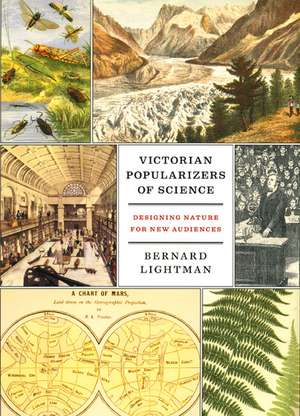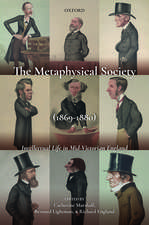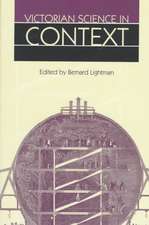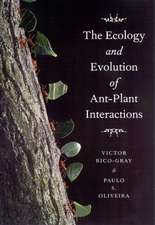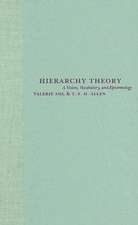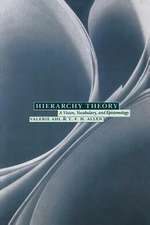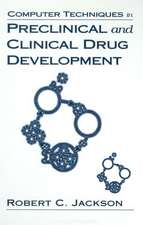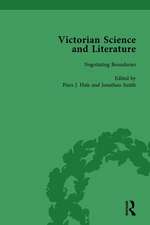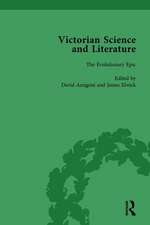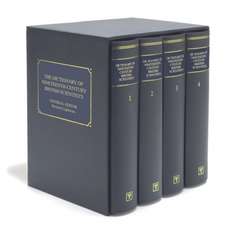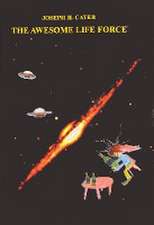Victorian Popularizers of Science: Designing Nature for New Audiences
Autor Bernard Lightmanen Limba Engleză Hardback – dec 2007
The ideas of Charles Darwin and his fellow Victorian scientists have had an abiding effect on the modern world. But at the time The Origin of Species was published in 1859, the British public looked not to practicing scientists but to a growing group of professional writers and journalists to interpret the larger meaning of scientific theories in terms they could understand and in ways they could appreciate. Victorian Popularizers of Science focuses on this important group of men and women who wrote about science for a general audience in the second half of the nineteenth century.
Bernard Lightman examines more than thirty of the most prolific, influential, and interesting popularizers of the day, investigating the dramatic lecturing techniques, vivid illustrations, and accessible literary styles they used to communicate with their audience. By focusing on a forgotten coterie of science writers, their publishers, and their public, Lightman offers new insights into the role of women in scientific inquiry, the market for scientific knowledge, tensions between religion and science, and the complexities of scientific authority in nineteenth-century Britain.
Bernard Lightman examines more than thirty of the most prolific, influential, and interesting popularizers of the day, investigating the dramatic lecturing techniques, vivid illustrations, and accessible literary styles they used to communicate with their audience. By focusing on a forgotten coterie of science writers, their publishers, and their public, Lightman offers new insights into the role of women in scientific inquiry, the market for scientific knowledge, tensions between religion and science, and the complexities of scientific authority in nineteenth-century Britain.
Preț: 453.23 lei
Preț vechi: 588.62 lei
-23% Nou
Puncte Express: 680
Preț estimativ în valută:
86.75€ • 89.40$ • 73.24£
86.75€ • 89.40$ • 73.24£
Carte tipărită la comandă
Livrare economică 03-17 martie
Preluare comenzi: 021 569.72.76
Specificații
ISBN-13: 9780226481180
ISBN-10: 0226481182
Pagini: 564
Ilustrații: 68 halftones, 2 tables
Dimensiuni: 152 x 229 x 45 mm
Greutate: 0.88 kg
Ediția:1
Editura: University of Chicago Press
Colecția University of Chicago Press
ISBN-10: 0226481182
Pagini: 564
Ilustrații: 68 halftones, 2 tables
Dimensiuni: 152 x 229 x 45 mm
Greutate: 0.88 kg
Ediția:1
Editura: University of Chicago Press
Colecția University of Chicago Press
Notă biografică
Bernard Lightman is professor of humanities at York University, Toronto, editor of the journal Isis, editor of Victorian Science in Context, and coeditor of Science in the Marketplace, all published by the University of Chicago Press.
Cuprins
Preface
Acknowledgments
Acknowledgments
Chapter 1
Historians, Popularizers, and the Victorian Scene
Chapter 2
Anglican Theologies of Nature in a Post-Darwinian Era
Chapter 3
Redefining the Maternal Tradition
Chapter 4
The Showmen of Science: Wood, Pepper, and Visual Spectacle
Chapter 5
The Evolution of the Evolutionary Epic
Chapter 6
The Science Periodical: Proctor and the Conduct of “Knowledge”
Chapter 7
Practitioners Enter the Field: Huxley and Ball as Popularizers
Chapter 8
Science Writing on New Grub Street
Conclusion
Remapping the Terrain
Bibliography
Index
Recenzii
“The book is a substantial work of scholarship rather than a casual read, and it offers much for historians of science as well as students of popular writing.”
"[This] book will be the basic resource for scholars interested in understanding the background of the thousands of popular science works. . . . It includes a path-breaking recovery of the lives, interests, and limitations faced by female nature writers."
"A major contributions to the study of popular science in nineteenth-century Britain. . . . Lightman offers by far the fullest and most comprehensive account of the popularization of science in Britain during the second half of the nineteenth century yet to be undertaken, and his study revises our understanding of Victorian popular science in significant ways."
"This study provides a crucial window into the science and society of Victorian England, and is an essential work for historians of that era."
"Victorian Popularizers is not just a history of science ‘from below’, although it effectively capitalizes on that literature. Rather, it is an important story of how some Victorians rebelled against the claim that only scientists should have authority over science. Lightman deftly shows how questions of authority were bound up in matters of publishing, church reform, professionalization, gender dynamics, visual spectacle and social change, and he makes substantial contributions to understanding the relationship between those matters and science. Historians interested in any of these issues will find this book enriching and thought provoking. The author’s insights into the world of Victorian science publishing offer important lessons for our own era’s continuing struggle with the question of scientific authority."
"The focus on diferent groups and types of popularizers . . . proves to be very insightful. Lightman demonstrates just how different they were in terms of their agenda, their mediums, their audiences and their socioeconomic situation. His broad panorama allows for illuminating comparisons."
"Thos interested in current popularizing by figures like Richard Dawkins will be intrigued by the parallels with our own time; those with an interest in social history will find that Lightman has done them a great service by bringing together such a large body of work in a single volume. Finally, those who simply want to read a well written book about a fascinating period in science will find Lightman's work appealing for its clarity of prose and wealth of detail."
"[Full of] sharp and unexpected insights, and every reader will learn much from it."
"This book is so richly written and so definitive a study of its fascinating subject that such relatively minor reservations should not deter the readers of Science Education from perusing a volume that is destined to be a classic. They will doubrtless find much here that will be of use to twenty-first century scholars who want to understand how to reach out and take a well-motivated vision of science out to the masses."
"Thorough but accessible. Scholars in the field, as well as history buffs, Anglophiles, and connoisseurs of the fine art of popular science writing, will enjoy it. It will also reward those concerned with changes in modern-day culture caused by the emergence of electronic media."
